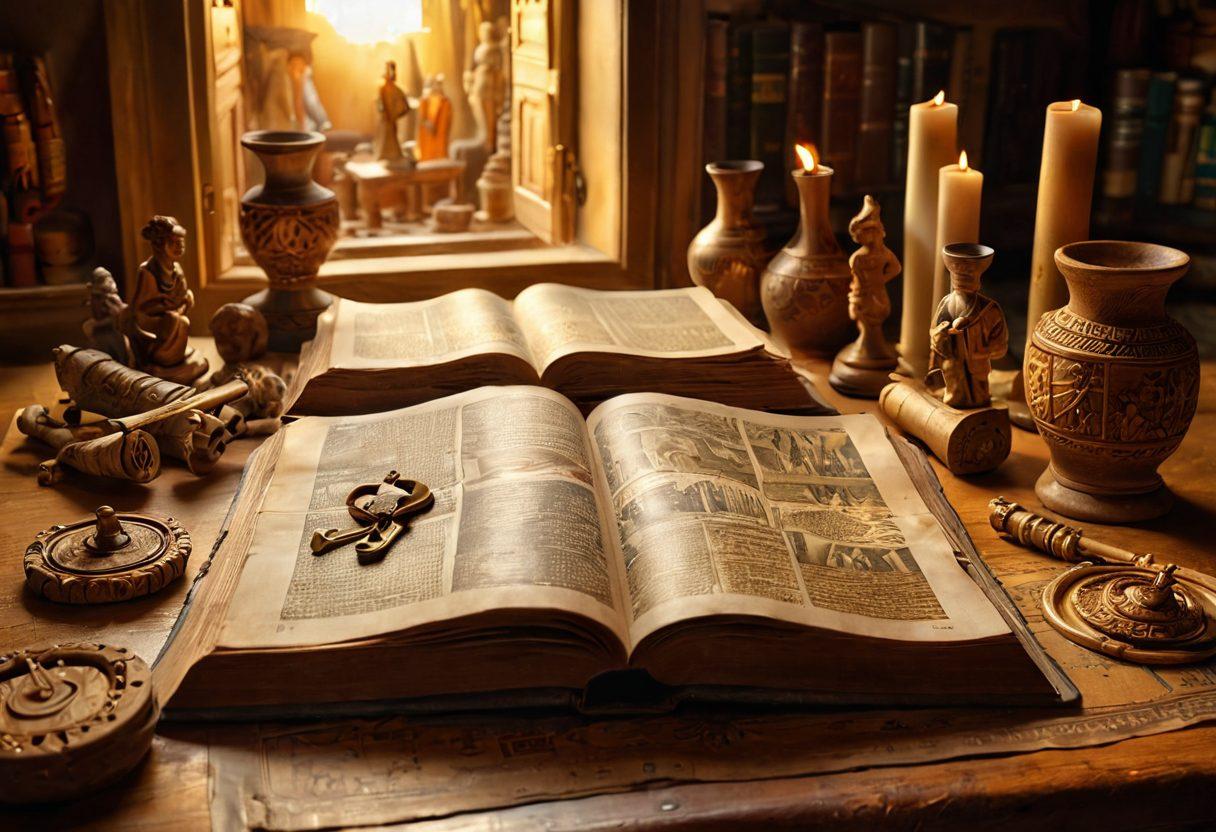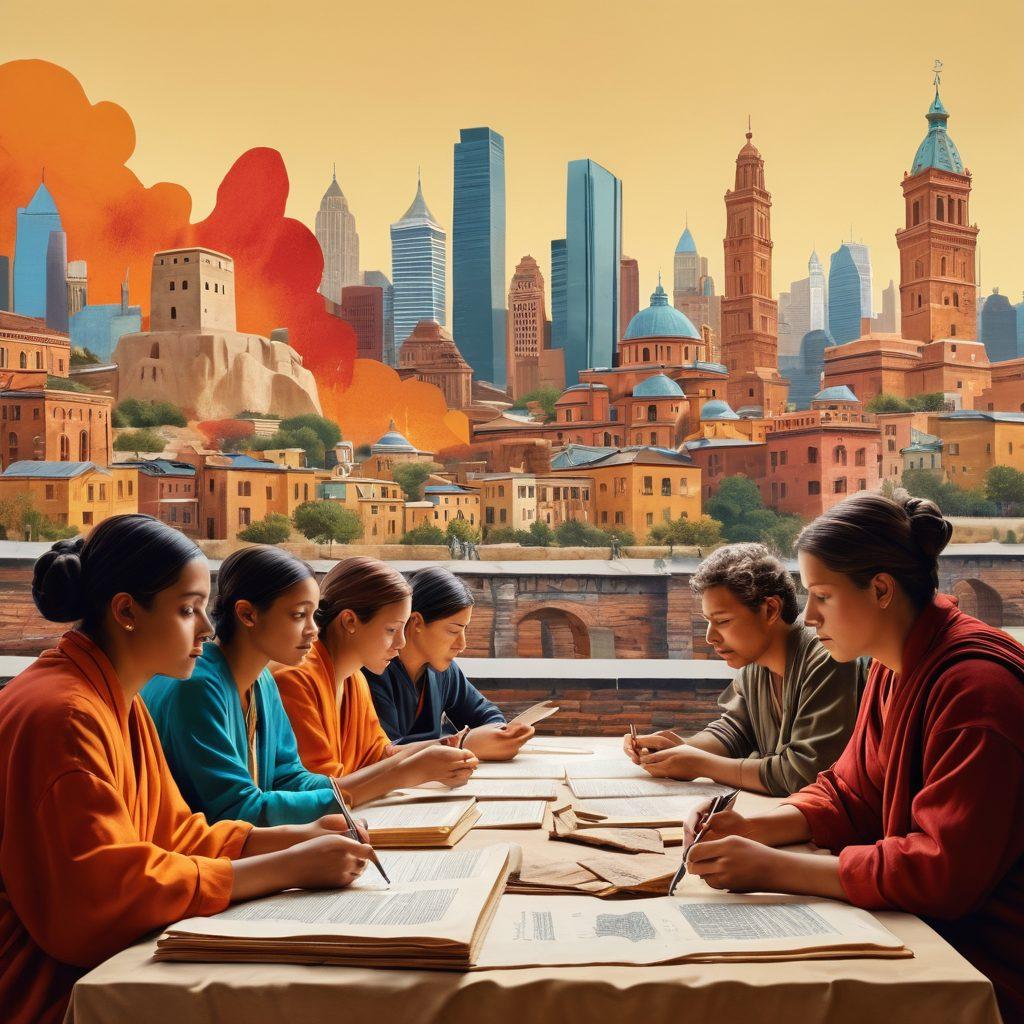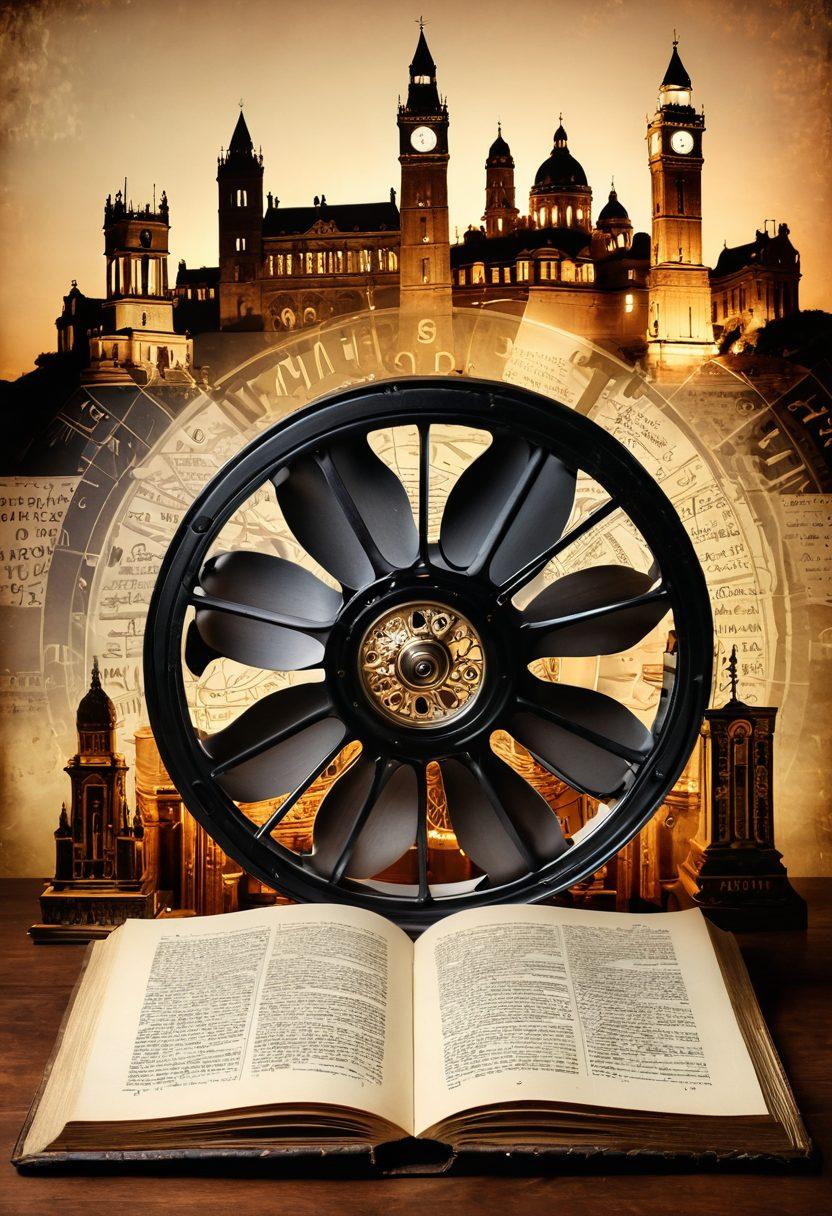Unlocking the Past: Engaging in Historical Narratives and Cultural Heritage Discussions
Imagine flipping through the pages of a well-worn book, only to discover the echoes of the past whispering their secrets to you. This is the enchanting power of historical writing, a portal through which we can engage in historical narratives and cultural heritage discussions. When we delve deep into history, we don’t merely recount events; we breathe life into chronicles that help us understand who we are today. Each tale we unravel is not just a record of dates and figures; it is a vibrant tapestry woven with the experiences, struggles, and triumphs of countless individuals. But why is it so important to immerse ourselves in these historical narratives?
Historical writing extends beyond the simple narration of events; it provides a lens through which we can examine the complexities of human experience. When we engage in history commentary, we initiate timeline discussions that foster understanding of our cultural heritage. As we analyze historical events, we begin to see the patterns that repeat themselves throughout time, shedding light on current issues and guiding our future actions. So, how can we make the most out of our historical explorations? Taking part in heritage discussions can anchor us in our community's identity and purpose, encouraging us to preserve our past while shaping a better future.
But let's not forget about the role of technology in historical discourse. With the rise of historical documentaries and digital history publications, engaging with our heritage has never been more accessible. We can review historical analysis or dive into history publications with just a click. This shifting landscape not only democratizes access to archival material but also invites fresh perspectives. Today, we can gather around digital platforms to share insights, igniting conversations that transcend borders. How often do we pause to appreciate the impact of these modern tools on our understanding of history?
As participants in cultural narratives, we have the unique opportunity to participate in a broader dialogue. Historical societies often serve as hubs for these discussions, offering a space to gather, exchange ideas, and reflect on historical research that resonates with our diverse experiences. By actively engaging in these communities, we contribute to the collective memory, and in doing so, we reinforce the importance of history education in shaping future generations. What legacies do we wish to pass down, and how might we as storytellers influence our narrative?
In conclusion, delving deep into historical writing and understanding its cultural impact is an invitation to explore both our past and our contemporary lives. By embracing historical narratives and engaging in heritage discussions, we arm ourselves with the knowledge and insight needed to face the future. Whether through history reviews, participating in historical societies, or simply making time for a compelling history documentary, we can each play a pivotal role in honoring our collective heritage. So, are you ready to turn the pages of history and unveil its treasures?
Reviving the Chronicles: How Heritage Discussions Shape Our Understanding of the Past
In an age where the rapid pace of technological advancement often overshadows the profound narratives of our past, reviving heritage discussions has never been more crucial. Imagine walking through an ancient city, the stones beneath your feet whispering stories of those who trod before you. What if those whispers could shape how we understand our world today? Heritage discussions serve as the beacons illuminating historical writing and providing rich historical perspectives to our cultural narratives, and therein lies the essence of our shared human experience.
Let's delve into the power of chronicles and how they weave together insights from history. Each historical narrative represents a thread connecting us to the lives and decisions of individuals and societies across time. It’s fascinating to understand how history commentary influences our present, often sparking discussions about the cultural heritage of communities that have shaped our world. As we engage with these stories, we develop a deeper appreciation for the complexities of past explorations, unearthing lessons that remain relevant today. So, how does your view of history evolve when you begin to look at it through the lens of heritage?
Consider the role of historical societies in curating history publications that communicate these chronicles to the masses. These societies often serve as guardians of archival material, allowing us to experience historical analysis that is both enlightening and thought-provoking. Imagine the thrill of stumbling upon a historical documentary that challenges your preconceived notions about a pivotal historical event; this is how timeline discussions can reshape our understanding of the past. What revelations might emerge when we freely exchange our insights in a community built around these heritage discussions?
Engaging deeply with history education is another crucial element of reviving these narratives. By fostering an environment where students and enthusiasts alike are encouraged to participate in history reviews, we can cultivate critical thinking and an analytical approach to historical research. When we share perspectives on our understanding of significant historical events, we create a dialogue that not only enriches our own knowledge but also influences future generations. This reciprocal exchange is vital in popularizing historical writing as a means to bridge the gap between the past and the contemporary world.
Ultimately, heritage discussions can cultivate a culture of curiosity and connection, rekindling our interest in the stories that shape our identities. As we engage with these cultural narratives through discussions and reflections, let us ask ourselves: how can we further cherish our historical roots? The answer rests not only in our acknowledgment of the past but also in our commitment to fostering these conversations, inviting diverse voices to join the chorus of history in focus. Let’s make our engagement with history a dynamic conversation that remembers, respects, and relishes the rich tapestry of our shared human story.
Exploring Time: Engaging with Historical Narratives Through Documentaries and Reviews
Imagine stepping into a time machine, where every episode of a historical documentary pulls you through a lens of the past. Does it spark a fire inside you—a longing to better understand our ancestors? Engaging with historical narratives through documentaries is not merely an entertaining pastime; it's an invitation to dive into the chronicles of humanity. From ancient civilizations to significant historical events, these films offer a visual feast for those eager to absorb the rich layers of cultural heritage that have shaped our present. But how do we make the most of these narratives? Let’s embark on this journey of exploration together.
Historically speaking, documentaries have long served as one of the best forms of historical writing, able to distill complex historical analysis into digestible and engaging content. Commentary from historians interwoven with archival material breathes life into the narratives, revealing the layers of intrigue and conflict that colored our past. Think of it as a tapestry, woven from innumerable threads—each representing different facets of life from various eras. By watching history in focus, we gain insight not just into what happened, but into how those events still resonate today. How many times have you found yourself watching a documentary, only to feel your heart race at the stories unfolding before you?
When we engage with history reviews, we become part of a broader conversation that challenges us to think critically about the past and its cultural narratives. Each review holds a mirror to our understanding of historical research, encouraging timeline discussions that dissect the events that have written our shared history. This isn't just passive learning; it’s about forming opinions and soliciting discussions within historical societies, deepening our understanding of where we're headed. Therefore, the next time you find yourself flicking through a channel, pause and consider: what historical perspectives are presented? And how do they compare with your own views?
What about the power of storytelling in historical documentaries? A well-crafted film weaves together perspectives, facts, and emotions, much like a spellbinding novel. Those who narrate these stories possess the ability to tug at our heartstrings, compelling us to feel empathy even for those who lived centuries ago. These narratives often ask us challenging questions about morality, politics, and identity. For instance, how do we reconcile the triumphs of history with its darker chapters? In our educational and personal growth journeys, tackling these questions becomes imperative if we are to understand the lessons learned from our ancestors’ experiences.
To engage deeply in heritage discussions, it’s essential to not only consume but also critique and reflect upon what we watch. Consider maintaining a journal of your thoughts after each documentary. What did you find compelling? What surprised you? This practice transforms passive viewing into active learning and enables you to surface themes and connections across different historical narratives. If we want to unlock the past effectively, we must do so as engaged participants, ready to challenge existing paradigms and explore the abundance of histories surrounding different cultural heritages. So, grab your popcorn, open your mind, and step into the captivating world of historical exploration—who knows what insights await you!


